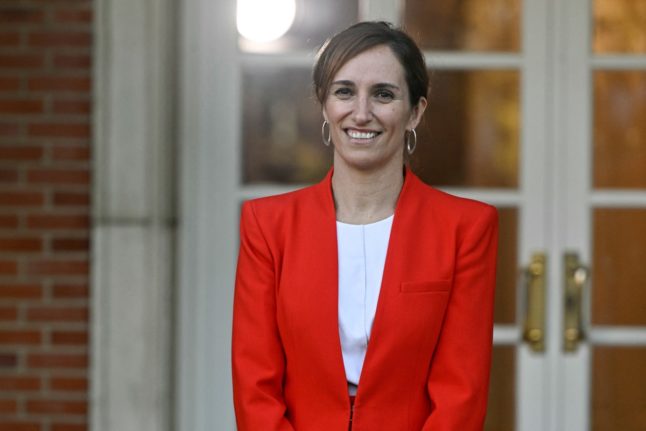The Asunta Case
A true-crime-inspired story on Netflix, the Asunta Case was just released at the end of April, but already has some fans. It tells the story of a 12-year-old girl who goes missing and the search to find her. Soon, the trail leads to her adoptive parents, who are accused of being involved with her disappearance and the story takes an even darker turn.
Berlín
A spin-off of the highly successful Casa de Papel or Money Heist in English. It follows one of the characters, Berlín and is a kind of prequel in that it tells the story of his criminal career before we get to know him in Casa de Papel. It takes place in Paris, where a gang of endearing Spanish criminals, led by Berlín, make a plan to steal €44 million worth of precious jewels. Some fans complained that Casa de Papel dragged on too long and got a bit ridiculous towards the end, but have been very enthusiastic about this one.
Cristóbal Balenciaga
Poligots will enjoy this new series from Disney+, which is originally in Spanish, Basque and French. It tells the story of world-famous Basque fashion designer Cristóbal Balenciaga and how he aims to present his first haute couture collection in Paris. It stars Spanish actor Alberto San Juan as the lead role, but international audiences will more than likely recognise Gemma Whelan who played Yara Greyjoy in the hit series Game of Thrones.
La Mesías
Spanish newspaper El Diario named La Mesías as its top series for 2023, beating a total of 43 it reviewed. It’s showing on Movistar+ and is part thriller and part drama. It tells the tale of Enric who had a traumatic childhood controlled by his overly religious mother and whose life is heavily impacted by a viral video of a Christian pop band made up of five sisters.
Machos Alfa
Translated as Alpha Males in English, this Netflix series first came out at the end of 2022, but the second season recently premiered in February 2024. It’s a comedy, following a group of four friends in their 40s who start to feel lost in this new society of feminists and empowered women and start to question their masculinity and the way they should act with women.
Las Noches de Tefía
Created by Miguel del Arco, who co-wrote and co-directed the series, Las Noches de Tefía is available on ATRESPlayer PREMIUM. It’s set inside a Francoist concentration camp on the Canary Island of Fuerteventura, a place where vagabonds, protestors of the regime, and homosexuals are sent.
El Inmortal
El Inmortal is available on Movistar+ and first came out in 2022. It was renewed for a second season which was recently released at the end of February 2024. It takes place in the 90s, during the time when gangs controlled Madrid’s nightclub scene and were involved in cocaine trafficking. The story follows Los Miamis a criminal organisation led by José Antonio, better known as El Inmortal, who becomes one of the city’s most successful drug lords. It’s based on the real life Los Miami gang and their leader Juan Carlos Peña.
Déjate Ver
This Spanish and Catalan series available on Atresplayer was called “the hidden gem of the year” by newspaper El Diario and is a quirky comedy about Ana, an artist’s assistant who who has begun to disappear. After receiving a diagnosis from the doctor she realises that if she doesn’t want to continue disappearing she must completely change her life around.
Nacho
Another from Atresplayer, Nacho reveals the secrets of the Spanish porn industry during the 90s. It’s set in Barcelona and follows title character Nacho, from his religious upbringing to his rise, becoming one of the most recognisable and influential figures in the adult film industry in the country. It’s based on the real life story of Ignacio Jordà González, better known as Nacho Vidal, one of Spain’s most famous pornographic actors and directors.
Los Farad
Set in Marbella during the 80s, Los Farad follows Oskar, a young man with the dream of setting up his own gym. It stars Miguel Herrán, who was also in two of the most popular Spanish series in recent years – Money Heist and Elite. He’s given the opportunity to come into some money by going to live with his girlfriend’s family in the Costa del Sol, but in return has to be part of the family business, which turns out is somewhat akin to the mafia. It’s available on Amazon Prime and first came out in December 2023.



 Please whitelist us to continue reading.
Please whitelist us to continue reading.
Member comments